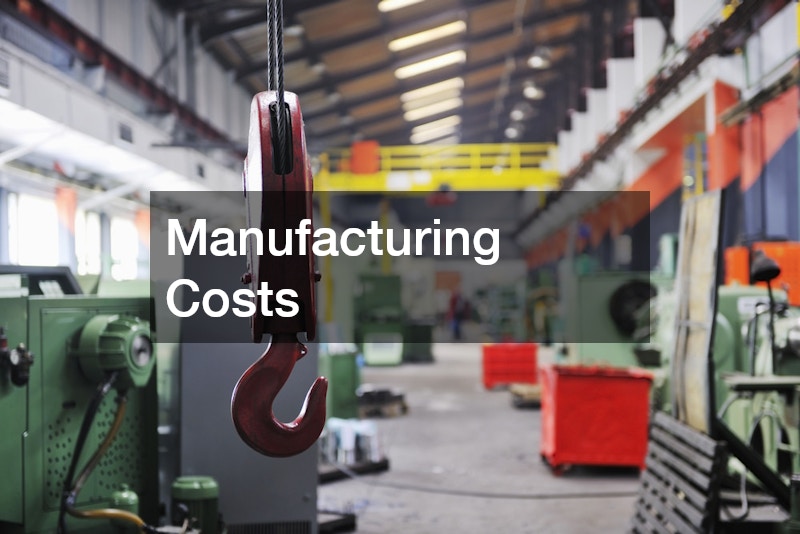We are pleased to present our detailed analysis of the car engine, a critical component in every vehicle. We will discuss a variety of topics, including sound levels, ease and cost of maintenance, durability, range, acceleration power, horsepower, transmission design, manufacturing costs, emissions, and overall performance. The engine of your car is at the core of its performance, from fuel economy to driving enjoyment. The engine you choose is crucial whether you are interested in maintaining your car or considering golf carts.
Recent technological advances such as electric motors and car detailing apps have revolutionised automotive technology, making it both more complex and efficient. Understanding these variables can help you make informed decisions, whether you are renting a commercial vehicle or comparing car insurance. Let’s delve deeper into the car engine, examining each aspect to provide you with a comprehensive understanding.
Sound Level
The noise level of an engine can significantly impact the driving experience. Older petrol engines, especially older models, are generally noisier. For some, this may be a convenience, while for others, it may be a nuisance. You can use an auto detailing app to reduce noise, making the ride more enjoyable.
Modern advances in engine technology aim to reduce noise levels. Innovative designs and materials have been introduced by manufacturers to absorb sound more effectively. Newer petrol motors are quieter, allowing for a more peaceful driving environment.
The sound level is important for both comfort and safety. It is crucial to consider this issue because excessive noise can distract a driver. Consider the noise level of your car when renting a van or golf cart to ensure a pleasant and safe journey.
Easy Maintenance

Ease of maintenance is also a critical factor when evaluating engine performance. Petrol engines have more moving parts, which makes them more challenging to maintain. For the longevity of an engine, regular maintenance such as oil changes and tune-ups is essential. Auto detailing apps are used by companies to track maintenance schedules and ensure that parts are in good condition.
You should consider the maintenance history of an engine when considering a commercial vehicle rental. Due to their complexity, petrol engines require frequent inspections. If you use the vehicle for business purposes, this can be an important consideration.
Ease of maintenance can also affect the cost of ownership. A vehicle that requires less maintenance can save you time and money in the long run. Understanding the maintenance requirements can help you make better investments, whether you drive a golf cart or a high-performance vehicle.
Sustainability
Sustainability is becoming more important in the automotive industry. Petrol motors are often scrutinised for their environmental impact. Petrol engines emit more pollutants and contribute to air pollution. To address these issues, companies are now focusing more on sustainable alternatives such as electric motors.
Local golf carts are setting the standard for sustainable transport. They are eco-friendly because they use electric motors. Sustainability in the car engine extends beyond emissions; it also includes production and disposal processes.
Electric motors are replacing petrol motors in many cars. This change not only benefits the environment but also brings economic advantages. Governments offer incentives for electric vehicles, making sustainable choices more accessible to the public.
Range
Range is a key factor when selecting a car engine, especially if you plan on going on a long-distance trip. Petrol motors have a greater range than electric motors. They are an excellent choice for those who need a vehicle for long trips. However, electric vehicles are improving in terms of range, thanks to advances in battery technology.
Repairing the air conditioning (AC) in your car and performing other maintenance can improve its performance, thus increasing its range. The engine will operate more efficiently if it is well-maintained. This can extend the distance that you can travel with a single tank of fuel.
The type of fuel the engine uses can also affect its range. Petrol engines provide a greater range than their electric counterparts. The choice between an electric motor and a petrol motor is based on a variety of factors, including performance and sustainability.
Power of Acceleration
Acceleration power is an important performance indicator for any automobile engine. Petrol motors are known for their powerful acceleration. Petrol engines can deliver rapid bursts of speed, making them ideal for situations that require fast acceleration.
Battery technology has made great strides in recent years, even affecting petrol engines. Advances in battery technology are making electric motors more fuel-efficient and capable of quicker acceleration. This is especially beneficial for vehicles such as delivery vans, which need to transport heavy loads.
Modern electric motors are also setting new standards in terms of acceleration. Electric motors are quickly catching up to petrol-powered motors, despite the fact that petrol engines have been the industry standard for many years. Electric vehicles are becoming more powerful due to advancements in battery technology.
Horsepower
Horsepower is a key measure of an engine’s performance. Petrol motors are often more powerful than electric motors and are therefore preferred for high-performance vehicles. This power boost is essential for off-roading or towing.
Electric motors are rapidly catching up despite their traditionally lower horsepower. Innovations in motor technology are closing the performance gap and reducing the environmental impact. Electric motors with comparable horsepower to petrol counterparts are being developed by manufacturers.
The intended use of a vehicle is often a factor in deciding between an electric motor and a petrol motor. For certain tasks, high horsepower may be essential. However, it may not be as important for everyday commutes. Considering horsepower is important when making a decision, whether you are renting a vehicle or upgrading your car with auto detailing apps.
Transmission Designs
Transmission design plays a crucial role in a vehicle’s performance. Petrol motors are usually equipped with complex transmission systems that offer a variety of gear options for different driving conditions. This makes driving more comfortable, especially over long distances.
Transmission designs have been revolutionised by electric vehicle chargers. Electric motors have fewer moving parts, meaning they wear out less. This simplicity improves performance and makes maintenance easier.
Transmission design complicates the choice between electric and petrol motors. Electric transmissions are more efficient and easier to maintain, while traditional transmissions provide greater flexibility. When considering a commercial van rental or long-term ownership, this trade-off becomes crucial.
Manufacturing Costs

The cost of manufacturing a car directly impacts its price. Due to the complexity of petrol motors and the materials used, they are usually more expensive to manufacture. These higher costs are often reflected in the final price, which makes petrol vehicles more costly for consumers.
Long-term, electric motors can reduce manufacturing costs. Although the initial technology investment is high, electric vehicles may become more affordable over time. Electric vehicles are also cost-effective because insurance companies often offer discounts for electric vehicle owners.
Petrol motors are expensive to manufacture, which is a major factor in the overall cost of vehicles. However, electric motors have been leading the way in reducing costs. Understanding manufacturing costs is important when comparing car insurance or evaluating new models.
Environmental Emissions
Environmental emissions are a major concern when evaluating automobile engines. Petrol motors are notoriously high emitters, contributing significantly to air pollution. These emissions contain harmful pollutants such as carbon dioxide and nitrogen oxides, which have wide-ranging environmental and health effects.
Motor vehicle accidents and legal cases involving emissions and their negative effects are on the rise. As the legal landscape evolves, manufacturers are increasingly held accountable for their engines’ environmental impact. The shift towards adopting cleaner technologies like electric motors is being driven by stricter regulations, with companies compelled to comply.
Reduced environmental emissions are a priority for both manufacturers and consumers. Electric motors are a better alternative to petrol-powered motors because they produce zero tailpipe emissions. Governments around the world are encouraging this shift through incentives and stricter emission standards.
Overall Performance
The sum of all factors that affect performance—including acceleration, horsepower, and fuel economy—is referred to as overall performance. Petrol motors have excelled in these areas for many years, offering a balance of power and reliability. However, modern electric motors are catching up and can match or even exceed the performance metrics of their petrol counterparts.
Petrol motors are often chosen by companies that rent trucks due to their performance. They are capable of carrying heavy loads over long distances and are ideal for commercial applications. Electric motors are challenging this standard, offering comparable performance with added benefits such as lower emissions and reduced maintenance costs.
When evaluating overall performance, it’s essential to take a holistic view, considering factors such as ease of maintenance, durability, and manufacturing costs. Understanding the performance characteristics of each engine will help you make an informed decision, whether you are using auto detailing apps to maintain your vehicle or looking at local golf carts.
The world of automobile engines is vast and complex, influenced by many factors such as sound levels, ease of maintenance, sustainability, range, acceleration power, horsepower, transmission design, manufacturing costs, and environmental emissions. Petrol motors are still the most common choice. They offer robust performance but also pose challenges in terms of noise, maintenance, and environmental impact.
The automotive industry is being reshaped by innovations like electric motors, battery advancements, and other technological developments. These new technologies provide sustainable solutions that do not compromise performance. Staying informed about the latest car engine innovations is important, whether you use auto detailing apps to maintain your vehicle or consider electric vehicle charging.
Understanding the differences between petrol motors and electric motors can help you make better decisions as we move towards a sustainable future. Being well-informed is key to navigating the rapid changes in the automotive industry.
